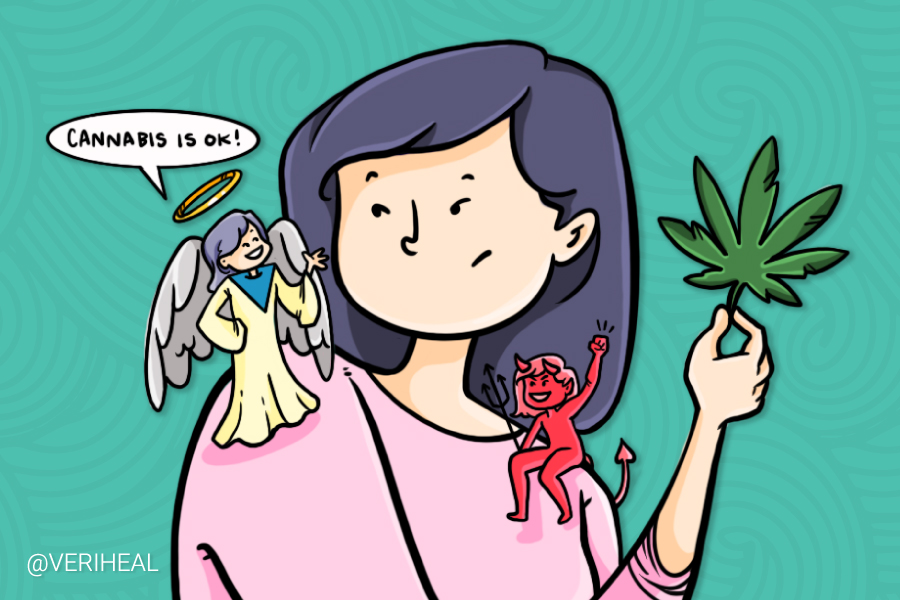America’s War on Drugs, which officially dates back to the Nixon Administration, has not aged well. Time has pulled back the curtain on the policies of the War on Drugs to reveal a quagmire of racist thinking and moral panic. It’s now widely believed that Nixon deliberately played on the fears Americans had about the impacts of drugs on the family to target anti-war protestors and Black people.
In the 1970s, the panic about drugs faded a bit, but it returned with a vengeance under the Reagan Administration. First Lady Nancy Reagan famously focused on the dangers of drug use with her “Just Say No” campaign, and the President implemented mandatory minimum sentences for certain drug crimes. Both policies were instrumental in demonizing drug use in the public eye, and that attitude spread to include cannabis.
When it comes to cannabis legalization and acceptance, the moral panic has been one of the greatest barriers we as a society have had to overcome. But now, after many years of struggling against misinformation, it looks as if we may, at last, be clearing that hurdle.
Cannabis is Viewed as Morally Acceptable
The good news comes from a Gallup Poll conducted earlier this year. The poll surveyed Americans about their views on the moral acceptability of a variety of issues. It is a survey that Gallup has conducted annually for the past 20 years.
When broken down by political ideology, it’s unsurprising that the majority of self-identified liberals surveyed felt that there was no moral issue involved in cannabis use—specifically, 83% shared this view. What’s perhaps more surprising is that, at 51%, more than half of all conservatives surveyed felt the same way. Of all the topics covered in the poll, only twelve others were able to generate that kind of agreement across party lines
Why You Should Get Your Medical Marijuana Card
Veriheal has satisfied millions of patients nationwide by giving them access to these benefits
- Larger purchase limits
- Peace of mind
- Enhanced legal protection
- Access to higher potency strains
- Save up to 25% on cannabis purchases
- Skip the line at the dispensary
Overall, cannabis use ranked as less morally permissible than only five other ideas—the use of birth control, alcohol, divorce, sex between an unmarried man and woman, and gambling. Cannabis use ranked as more accepted than fifteen other issues, among them homosexuality, the death penalty, stem cell research, and having a baby outside of marriage.
As an interesting side note, the survey specifically asked about the morality of smoking cannabis, as opposed to using it in any of its many other forms. The survey also used the word “marijuana” instead of “cannabis,” which might have been perceived as a more loaded term by some respondents. It is unclear what effect these two factors had, if any, on the results of the survey.
Cannabis Legalization
So what does this mean for the issue of cannabis legalization?
It’s difficult to say. Although this particular survey did not gather opinions about the matter, another Gallup Poll conducted in October of 2019 asked respondents where they stood on the matter of cannabis legalization. In that poll, 66% of respondents indicated that they supported legalization. This number has increased steadily over time. When first asked about cannabis legalization, back in 1969, only 12% of Americans claimed to support legalization.
What that means, very clearly, is that we as a nation are moving in the right direction. We are coming to accept that there is no moral problem with cannabis use, and that cannabis may even prove itself beneficial for Americans dealing with such issues as chronic pain, anxiety, seizures, and sleeplessness. We’ve come a long way from the moral panic of the 1960s. And while we still have a long way to go before cannabis is treated as it should be in society, we can all feel confident that we’re moving in the right direction.
Author, Share & Comments
















